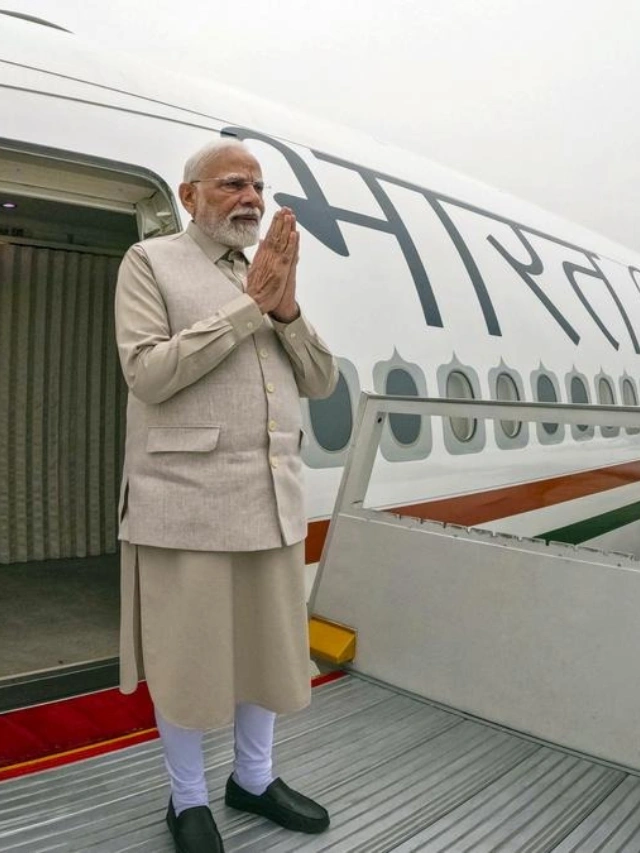Sridhar Vembu
Sridhar Vembu’s life began in 1968 in a small village called Umayalpuram in Thanjavur district, Tamil Nadu. The village is known for Carnatic classical mridangam artist Umayalpuram K Sivaraman, who is his mother’s cousin. His father’s village, Chidambaranathapuram, sits about 30 km down the Kaveri river, close to the Kollidam branch.
CEO’s | Actors | Politicians | Sports Stars
The villages shaped Vembu’s outlook and future business philosophy as he spent most of his childhood there. His father worked as a stenographer in the Madras High Court and later became the head of the private-assistants’ section. His middle-class family valued education above all else.

Early Life and Education of Sridhar Vembu
A childhood memory changed young Vembu’s life forever. An elderly lady from his father’s village spoke to him when he was 12 or 13 years old. She said, “You are a smart kid, you’re going to do well in life, but however well you do, don’t ever forget that you come from this village as the village can’t afford to lose you.” These words struck a chord with him and later shaped his business choices, especially his steadfast dedication to rural development. Newspapers became his gateway to the world without internet access. Senior journalist Arun Shourie’s bold writing style left a lasting impact on his thoughts.
Academic journey: From IIT Madras to Princeton
Early education began simply for Sridhar Vembu. He studied in a Tamil-medium government-sponsored school until class 10. His brilliance showed early. He topped his class 12 examinations and ranked 27th in the tough Joint Entrance Examination for the Indian Institutes of Technology. This success earned him a spot at IIT Madras, where he got his bachelor’s degree in Electrical Engineering in 1989.
America beckoned after his undergraduate studies. Vembu earned both his Master’s and PhD in Electrical Engineering from Princeton University in New Jersey, finishing his doctorate in 1994. He first wanted to become a professor rather than start a business. His school and college years showed no hints of entrepreneurship, though economic issues, mainly poverty, had caught his interest since he was 10.
His career took an unexpected turn after his PhD. Vembu taught briefly at the Australian National University in Canberra but quit after just two weeks. He then joined Qualcomm as a wireless systems engineer in San Diego, California, before moving to the San Francisco Bay Area. At Qualcomm, he worked on CDMA for satellite communications alongside wireless communication leaders.
How his education shaped his worldview
His technical background laid the groundwork, but Vembu’s outlook grew beyond engineering. IIT Madras and Princeton gave him strong technical skills, but he grew frustrated with academia during his PhD. The pressure to publish bothered him. He saw how even top institutions rushed to publish overblown studies. This made him question academic integrity and pushed him toward business.
Village life molded his values deeply. His rural Tamil Nadu roots gave him a clear view of India’s economic gaps. The difference between his village childhood and life abroad made him ask: “Why are we so poor?” This question drove his business path. He believed that while government plays a role, private companies must create jobs—this pushed him to take action.
His family role influenced his leadership. Being the oldest child, Vembu became a father figure despite small age gaps. His sister Radha, three years younger, remembers how he pushed everyone to reach new goals though he didn’t help with studies. This mentoring style later defined his approach at Zoho. Though raised in a traditional middle-class family, he spoke his mind while respecting his parents’ feelings. His Buddhist beliefs and balanced approach to life’s ups and downs shaped how he handles personal and work challenges.
The Birth of Zoho: From AdventNet to SaaS Giant
Original days in the US and work at Qualcomm
Engineer by profession, Sridhar Vembu started his career at Qualcomm in San Diego after earning his PhD from Princeton University in 1994. He spent two years at Qualcomm as a wireless systems engineer. His work centered on CDMA technology for satellite communications and he worked alongside industry leaders in wireless communication. This experience helped him learn about technology development and product engineering, which later proved significant in his business trip.
Technology vision started taking shape during his Qualcomm days as he watched the digital world of the mid-1990s unfold. His brother Kumar Vembu, also a software engineer at Qualcomm, wanted to return to India. Kumar saw that software development offered a promising business chance in India and decided to move back. His decision became the spark that would grow into a global software empire.
Founding AdventNet with his brothers
Entrepreneurial beginnings came to life in 1996 when Sridhar’s brothers Kumar and Shekhar Vembu, along with Tony Thomas (Sridhar’s classmate from IIT Madras), started AdventNet—a software development company focused on network management. The company had a unique structure from day one. His brothers ran operations from their Chennai home while Tony Thomas managed the US side. Sridhar stayed out of the venture at first since Qualcomm still hired him.
Pivotal moment struck in 1997 at a Las Vegas trade show. Thomas asked Sridhar to help find a sales representative. Sridhar stepped up to handle sales himself and printed business cards naming himself VP of marketing and business development at AdventNet. The team landed multiple contracts during this event. This marked Sridhar’s entry into the company. He led AdventNet’s sales in the US while the Indian team focused on research and development.
Growth trajectory soared as the founders put all profits back into the company. “We crossed ₹2.95 crore in sales and we plowed it all back into R&D for our next product (Web NMS),” Sridhar noted. Sales hit ₹8.4 crore in 1998, and only then did the founders start taking modest salaries. Revenue more than doubled in 1999. In spite of that, Sridhar kept refusing Thomas’s requests to become CEO because he was the company’s only salesperson. He finally accepted the CEO role in 2001 after hiring a sales professional who tripled revenue.
Rebranding to Zoho and pivot to SaaS
Market adaptation became essential after the dot-com crash in 2001. AdventNet made a strategic move to software-as-a-service (SaaS) and launched new products including IT management solution ManageEngine and cloud division Zoho.com. This move proved smart as SaaS gained worldwide popularity.
Product progress picked up speed with Zoho CRM and Zoho Writer’s release in 2005. These were the company’s first office suite products. They added Zoho Projects, Creator, Sheet, and Show to their portfolio in 2006. Collaboration tools Zoho Docs and Meeting followed in 2007. The company launched invoicing and mail applications in 2008, reaching one million users.
Corporate transformation concluded on May 27, 2009, when AdventNet became Zoho Corporation. This new name showed the company’s progress and growing focus on SaaS. Zoho Corp now ran three divisions for different markets: Zoho.com for online business applications, ManageEngine for enterprise IT management, and WebNMS for OEM needs. The company stayed private and profitable through these changes, running without outside funding for 13 years.
Bootstrapping a Billion-Dollar Company
Why Sridhar Vembu rejected external funding
Unconventional wisdom shapes how Sridhar Vembu built Zoho. The company hit sales of 50 crore rupees in 2000 after landing Cisco as a client. An investor offered 50 crore rupees at a 700 crore rupee valuation. Vembu turned down this chance to get rich quickly. As Zoho grew, he kept saying no to outside investors. He even said no when Salesforce wanted to buy them out, even though Zoho was offering similar features at just one-sixth of Salesforce’s price.
Long-term vision lies at the heart of Vembu’s beliefs. Zoho’s company culture document states plainly: “We are in it for the long run”. Unlike typical Silicon Valley companies that rush to scale up and cash out, Vembu wants to build something that lasts for generations. This belief faced its biggest test during the dot-com crash when Zoho’s client base dropped from 150 to just three.
Financial independence lets Zoho chart its own course. Vembu puts it simply: “It’s also coming from us staying private because a lot of our profit we earned from business is going into this. It’s going into R&D. It’s going into more figuring out complicated technology. And it is going into all these charitable activities”. The numbers back up this approach – Zoho reached revenues of 8,700 crore rupees without taking a single rupee from outside investors.
The role of product-first thinking
Engineering over marketing makes Zoho different. They put three times more money into R&D than into sales and marketing. Their point of view is clear: “We save a great deal of money by politely declining to engage in marketing… Should we spend money marketing to you, or should we spend it on building products for you?”. This focus on products has helped Zoho create more than 50 different tools for businesses.
Quality as strategic advantage guides how Zoho builds products. Their website states: “Good software is a work of art, and good art takes time”. While others buy companies to grow, Zoho builds everything from scratch. This leads to products that work better together. Teams spend years to become skilled at their craft, creating products their customers love.
Customer-centric principles shape every decision. Users can try free versions of Zoho’s products that stay free forever. This helps them see the value and often leads them to try other Zoho products. They also don’t lock customers into long contracts. They believe customers should stay because they’re happy, not because they’re trapped.
How Zoho scaled without investors
Patient capital approach helped them grow steadily. Without outside money, Zoho could think long-term instead of worrying about quarterly results. Analyst Brent Leary explains: “Not taking VC money or going public allowed the company to do things in a manner and time frame that didn’t erode the culture and heart of the company”. This freedom let Zoho change direction when needed.
Employee-first culture built trust through tough times. When COVID-19 hit in 2020, Vembu promised no layoffs whatever happened. During the dot-com crash, he kept paying full salaries to all 115 engineers while taking no salary himself for four years. This approach helped keep employees loyal even during the “Great Resignation”.
Global expansion strategy grew from strong roots. Zoho started with small and medium businesses but has grown beyond that. Vembu notes: “If you asked me five years ago, SMBs would have been the vast majority of our business. Today, a good 25% to 30% of our business is coming from the midmarket and enterprise”. By growing carefully and focusing on value, Zoho now competes with giants like Salesforce, Google, Microsoft, and Oracle.
Rural Innovation and Zoho’s Decentralized Model
Moving from Silicon Valley to Tenkasi
Reverse migration pioneer, Sridhar Vembu stunned the tech world in 2019. He left Silicon Valley for the rural village of Mathalamparai near Tenkasi in Tamil Nadu. This bold decision came after living in the United States for 25 years and building Zoho into a global software company. He believed that “talent is universal, opportunity is not.” Vembu wanted to prove something simple yet powerful: “you can build world-class products from rural areas.”
Philosophical underpinnings shaped this bold move. Vembu saw how India’s major cities were becoming overcrowded, polluted, and expensive. His vision aimed to create quality jobs in rural areas to curb the rush toward cities. He strongly backed the idea of “village offices” instead of urban headquarters. This approach connected deeply with his childhood memories of rural Tamil Nadu, linking his past to his business philosophy.
Setting up rural offices in Tamil Nadu and Andhra Pradesh
Tenkasi transformation started small in 2011. Zoho opened its first rural office with just six employees in the town. Today, this office has grown to house more than 500 employees. The company now runs 10 offices across Tamil Nadu, with locations in Renigunta, Tenkasi, and Chennai. They’ve added more facilities in Kerala, Andhra Pradesh, and Uttarakhand. Zoho keeps opening international offices in Japan, Mexico, and Brazil, yet stays true to its rural roots.
Pandemic acceleration proved Vembu right. “The pandemic made me even more convinced about our model,” he says. During lockdowns, Zoho set up small offices in rural areas where their employees’ families lived. This let staff work productively close to home. Their foresight helped them adapt quickly while other companies struggled with remote work.
Impact on local employment and community
Economic revitalization has transformed these rural areas. Zoho hires local youth, trains them well, and pays city-level salaries. This stops talented people from leaving their villages for cities and helps keep rural communities alive. These offices boost the local economy through increased spending and new service needs in areas that needed development.
Social transformation goes beyond just jobs. Vembu focuses on building up entire communities. He invests in local infrastructure, education, and farming projects. “We don’t just create jobs; we help build sustainable communities,” he says. Zoho’s presence has made life better in these regions. Their success shows that top tech companies can thrive outside cities, changing how people think about innovation and reshaping India’s development story.
Zoho Schools and Alternative Education Vision
Why Sridhar Vembu started Zoho Schools
Sridhar Vembu launched Zoho University (now Zoho Schools of Learning) in 2005 with just six rural high-school students, marking the beginning of his educational vision. Students received two years of training in computer science, mathematics, and communication before joining the company. This bold experiment came from Vembu’s firm belief about formal education’s limitations. “Formal education only takes you so far, but most of the contextual knowledge comes from actually doing something,” Vembu explains. He created this alternative education model to nurture talent that traditional academic institutions often overlook.
Training rural youth without college degrees
Zoho Schools stands out from conventional education through its practical approach. The program targets students aged 17-20 from low-income rural backgrounds. Students receive a monthly stipend of Rs. 10,000 during their first year, which grows to Rs. 15,000 in the second year. “We wanted young people with fire in their bellies. Those who had a strong desire to do something in life, but had not been able to proceed with their education because of their family backgrounds,” explains Rajendran Dandapani, president of Zoho Schools. Students become productive quickly as they learn through hands-on projects with experienced software professionals at Zoho’s campus.
The future of vocational education in India
Zoho Schools will celebrate its 20th anniversary in 2025 with significant expanding effect, announcing new campuses in Tharuvai and Kumbakonam, India. The program’s success shows in numbers—15% of Zoho’s workforce has Zoho Schools graduates. Vembu strongly believes that “getting young people in debt in the name of education is a major sin, it is inhuman”. His vision now has initiatives like Marupadi, a career-relaunch bootcamp that helps women return to tech careers after breaks. “Public policy should explicitly aim for freedom from debt, for youth in particular,” Vembu supports, urging companies to “invest directly in advanced skill training for their employees”. This philosophy could reshape India’s approach to vocational education by focusing on practical skills, debt-free learning, and direct industry involvement.
Key Takeaways
Sridhar Vembu’s journey from rural Tamil Nadu to building an $8700 crore software empire offers powerful lessons on unconventional business building, rural innovation, and sustainable growth without external funding.
- Bootstrap for freedom: Vembu rejected multiple investor offers to maintain long-term vision and strategic independence, proving billion-dollar companies can thrive without external funding.
- Rural talent revolution: Moving operations from Silicon Valley to rural Tamil Nadu, Vembu demonstrates world-class products can be built anywhere while revitalizing local communities.
- Product over marketing: Zoho invests 3x more in R&D than sales/marketing, focusing on building exceptional products rather than aggressive promotion tactics.
- Alternative education works: Zoho Schools trains rural youth without college degrees, with 15% of the workforce being program graduates, challenging traditional education models.
- Decentralized growth model: Operating 10+ rural offices across India while competing globally against tech giants proves sustainable, community-focused business models can scale effectively.
Vembu’s approach challenges Silicon Valley orthodoxy by prioritizing patient capital, rural development, and employee-first culture over rapid scaling and quick exits, creating a blueprint for sustainable tech entrepreneurship in emerging markets.
Also Read: Journey of Rangarajan Raghuram
FAQs:
What is Sridhar Vembu’s net worth?
As of 2025, Sridhar Vembu’s net worth is estimated at approximately $5.8 billion (about ₹31,500 crore). He ranks among India’s top 40 richest people and much of his wealth comes from his majority ownership in Zoho Corporation, the global software company he co-founded and built from the ground up.
What is known about Sridhar Vembu’s family?
Sridhar Vembu comes from a humble, middle-class Tamil Brahmin family in Thanjavur district, Tamil Nadu. His parents placed a strong emphasis on education. Sridhar is married to Pramila Vembu, and the couple has one son. Despite their success, they have maintained a simple lifestyle. His family includes entrepreneurial siblings—his brother Sekar Vembu and sister Radha Vembu, both of whom have played pivotal roles in Zoho.
What is Sridhar Vembu’s educational background?
Sridhar Vembu holds a B.Tech in Electrical Engineering from the Indian Institute of Technology (IIT) Madras (1989) and both an MS and PhD in Electrical Engineering from Princeton University, USA—prestigious qualifications that underpin his technical and leadership success.
Does Sridhar Vembu have a son?
Yes, Sridhar Vembu and his wife Pramila have one son. In 2020, Sridhar moved with his son to a rural village in Tamil Nadu as part of his efforts to promote rural development and decentralize opportunities in India. Sridhar has spoken publicly about raising his son in India’s countryside and about the joys and challenges of parenthood as a global business leader.
Who is Sridhar Vembu’s wife?
Sridhar Vembu’s wife is Pramila Vembu. She is a supportive partner throughout his personal and entrepreneurial journey. The couple married before Sridhar became a global tech leader. The Vembu family has often emphasized leading a life rooted in simplicity and rural values, with Pramila and their son now living in Tamil Nadu, India. Sridhar has credited his family as a pillar of strength throughout his career.
How old is Sridhar Vembu?
Sridhar Vembu was born in 1968, making him 57 years old as of 2025.
Where is Sridhar Vembu’s native place?
Sridhar Vembu’s native place is a small village in Thanjavur district, Tamil Nadu, India. Despite his international education and global business success, he has returned to rural Tamil Nadu to focus on technology-driven rural development and social entrepreneurship.
Does Sridhar Vembu have a brother?
Yes, Sridhar Vembu has siblings—brother Sekar Vembu and sister Radha Vembu. Both have been closely involved in Zoho Corporation. Sekar was an early collaborator in setting up the company, while Radha is one of the core owner-leaders. The success of Zoho is often described as a family-driven venture, with each sibling contributing to the company’s growth and strategy.




